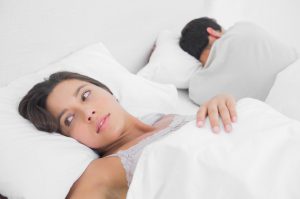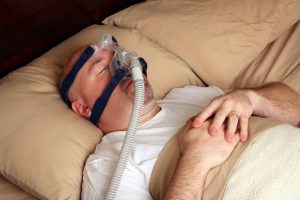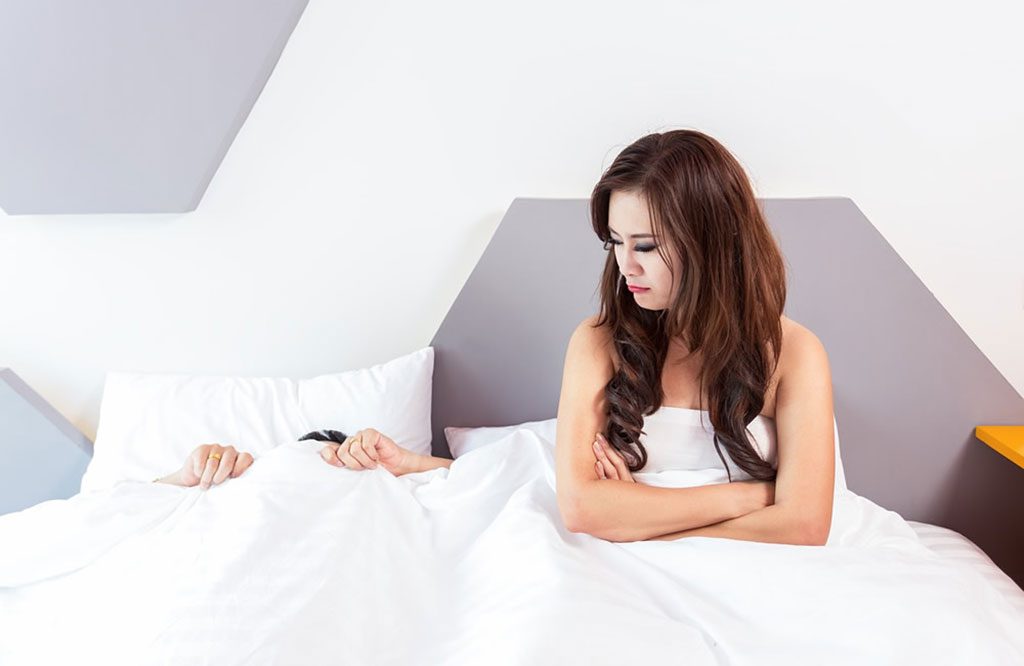Ever hear your partner give you a nudge in the middle of the night, telling you to “stop snoring”? I’ve done this one too many times and quite frankly I wish I could stick a rolled up pair of socks in my husband’s mouth. Snoring frequently can be a symptom known as ‘sleep apnea’. It is a good chance that you have sleep apnea or someone in your family has or had sleep apnea. There are certain types of sleep apnea that can be considered hereditary. Below we will discuss Sleep Apnea and Insomnia and is there natural treatments for sleep apnea?
What is Sleep Apnea?
Sleep Apnea is known as when breathing during your sleep your breathing ceases or reduces dramatically for a period of time. They say it is when you stop breathing for about 10 seconds or longer, that is when it is a sign of sleep apnea. It can be pretty scary, as this causes your blood and oxygen levels to drop. At this point, it is when the person begins to make a ‘gasping for air’ noise. It is pretty startling to hear when your partner is doing it. Unfortunately, most people that have sleep apnea don’t even realize they have it as they aren’t fully conscious when they are in that state.

Symptoms of Sleep Apnea
Symptoms of sleep apnea include:
- Headaches
- Irritability
- A sore throat
- Frequent urination
- Problems with Memory
- Snoring
- and Insomnia
Types of Sleep Apnea
Sleep apnea occurs in several different types:
- Obstructive Sleep Apnea
A severe form of sleep apnea created by an airway blockage. This is the more common form that occurs when throat muscles relax and the soft tissue at the back of the throat collapses during sleep.
Excessive snoring can be a sign of Obstructive Sleep Apnea, it is more common in individuals that are overweight. Children can also be affected as they may have enlarged tissue in their throats but this should eventually go away into their adolescence.
If you notice your child frequently wetting the bed at night and snores a lot, get them checked by your local family doctor to rule out sleep apnea. - Central Sleep Apnea
Occurs when your brain doesn’t send proper signals to the muscles that control breathing, this can be a result of certain medications that interfere with the neurotransmitters of the brain. - Complex Sleep Apnea Syndrome
This is known as a condition when someone has both types of sleep apnea -central sleep apnea and obstructive sleep apnea.
Sleep apnea is a chronic sleep condition that requires long-term management through lifestyle changes, mouthpieces, surgery, and other treatments. If the condition is left untreated sleep apnea can lead to major medical problems, such as high blood pressure, headaches, stroke, heart failure, diabetes, and depression. In addition, sleep apnea can cause poor cognitive functions and affect your daily activities as a result of sleep deprivation. You may feel from the experience you will have a hard time falling asleep, it may cause a lot of stress for you and wear your body down over time. This can result in lowering your immunity.
It is vital that you see your doctor to treat any chronic snoring or breathing issues during sleep. It is a common condition that people suffer from worldwide and most people aren’t even aware of the issue. So be aware of these symptoms above and if you are experiencing any of those issues or your partner does seek a doctor immediately. Sleep apnea can be life threatening to anyone, sadly I know of this because a friend’s father passed away as a result of sleep apnea.
If you hear your partner in the middle night snore loudly or they are acting restless tossing and turning during sleep, or possibly choking at night time or gasping, and frequent pauses in breathing, this is a definite sign of sleep apnea.
These symptoms are generally caused by airway obstruction as a result of enlarged throat tissue or poor airway-muscle tone. If you suffer from these symptoms, see your doctor for a physical exam. He or she may refer you to a specialist for a sleep assessment which measures various body functions during sleep to determine the severity of your breathing impairment.
Cure for Sleep Apnea

There are many different ways to treat sleep apnea, some require surgery, while others require the CPAC machine. This is known as ‘continuous positive airway pressure machine’ which flows consistently in a tube connected to your mouth allowing you breathe without obstruction. Also, another type of treatment for less-severe cases involves a mouth piece that you wear at night. They are designed to prevent you from snoring and making sure you are positioned properly for proper airflow.
However, those treatments can be very expensive and if you don’t have insurance coverage this can be a huge burden of debt to bear. It leaves the person permanently dependant on the devices unless you opt for surgery which has other issues all its own. In some cases for people, surgery isn’t even an option as everyone’s situation is unique.
But being that this is site is all about holistic therapy this is what I will recommend to you. To treat sleep apnea naturally here are some suggestions, ensure your weight is managed, people that are overweight are prone to sleep apnea. Take Ginseng supplements, Ginseng is great to open up the airways and help the oxygen flow through your body. It is known to aid people with respiratory problems. However, do note Ginseng can be stimulant and cause you to stay up at night, thus resulting in insomnia.
Have you tried any other methods besides listed here? Share your comments and thoughts below.


My wife snores quite a bit and a simple budget to the shoulder next to me seems to make her adjust something and the snoring usually stops.
Is this kind of snoring a symptom of sleep apnea?
For me the issue is not snoring but and inability to get tot sleep. When I go to bed, I usually take a long time to get to sleep. Recently I started going to bed before 11pm instead of midnight and this seems to give me a better sleep in that I go to sleep fast and have a better sleep. But, still at least once a week I have trouble getting to sleep, o these occasions I usually get to sleep about 3 am. Have you any suggestions for this?
Hi Alan, thanks for the comment! That can be a sign of sleep apnea if it is excessive snoring, it usually happens when they lay on their back. If you hear your wife gasp for air that is a definite sign and she should see a doctor immediately.
As for your lack of sleep, I hear yah I go through the same thing it usually involves with too much electronics prior to bed, the blue light prevents you from producing melatonin so it is harder to fall asleep. Also you might benefit from mangnessium so this post is about that!
Cheers!
Having a piece of breathing apparatus like this over your face at night must play havoc with your sex life. I’m sure one’s partner would eventually always have this image in her/his mind before they even get into bed and that would be a turn off would it not ?
I’m not sure whether folk snor when they are lying on their sides, but we don’t. When one of us starts snoring the other simply touches the other gently , we roll onto our sides and that goodnight Irene !
Thanks for the comment. I think it would, but for some it is absolutely necessary to have that device, their life depends on it. But there may be other options available to them, there are certain postures they can lay in and excercises they can do to improve their breathing. As mentioned with that program.